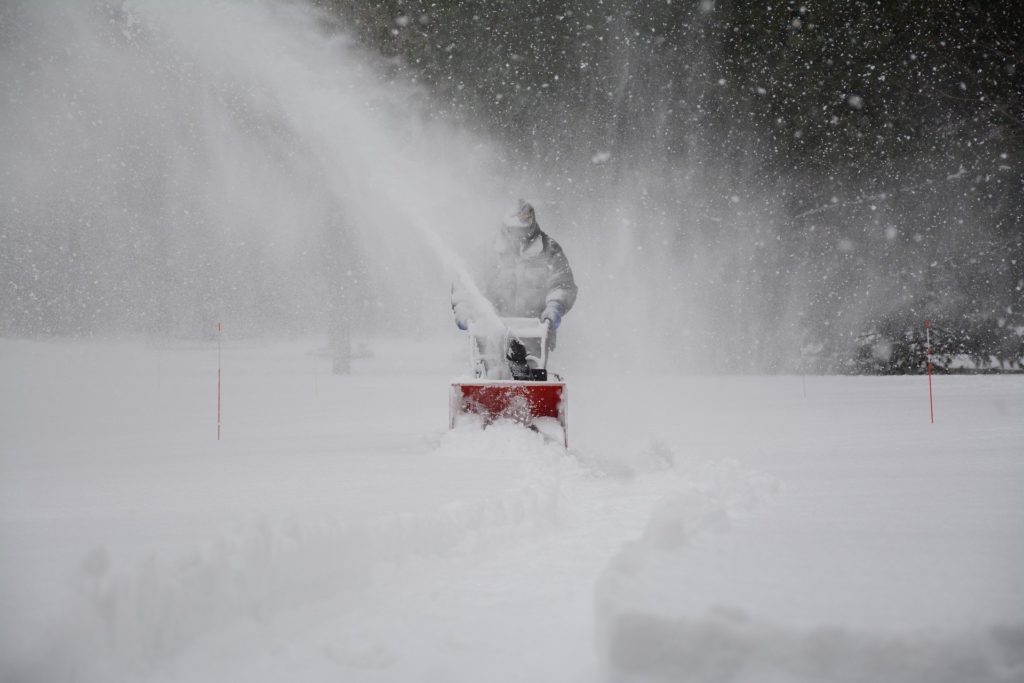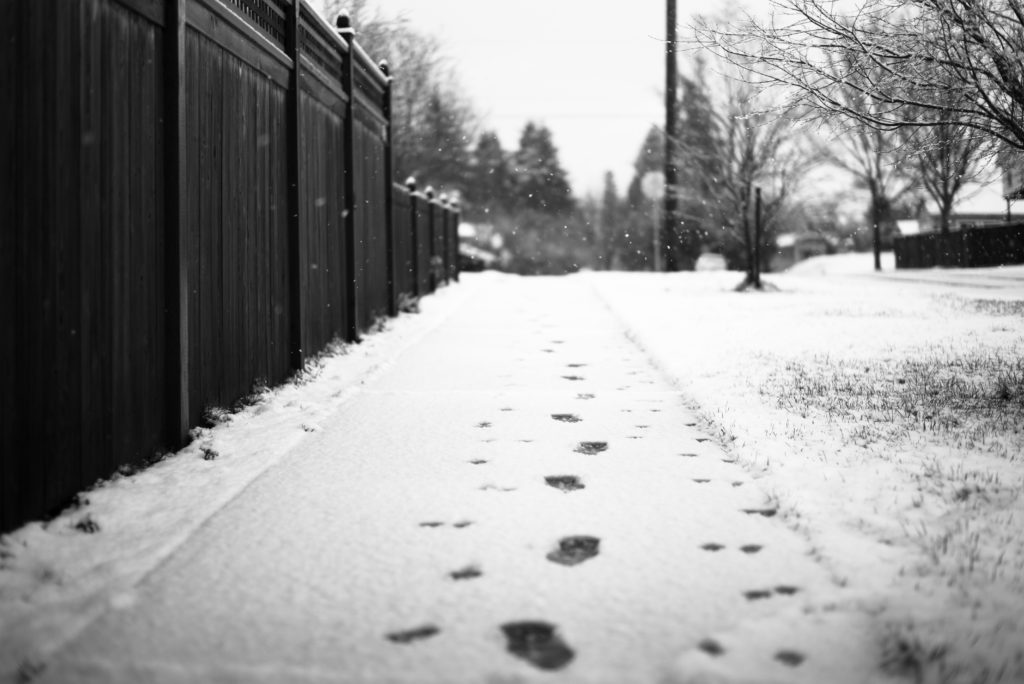
A quick look at some of our towns’ ordinances gives us a pretty strong clue that we live in New England. Indeed it is the season of risk for winter slip-and-fall injuries caused by unsafe conditions resulting from ice and snow. Because of the liability exposure presented by winter weather, formal snow-clearing ordinances laying responsibility on abutting property owners and occupants are common in Connecticut towns and cities, including Torrington, New Milford, and Danbury.
Most are similar to the winter snow removal ordinance in Ridgefield, which says in part:
SIDEWALKS: Snow clearance will be the sole responsibility of the property owner or business owner with frontage abutting the sidewalk. Removal of snow from sidewalks is required within 8 hours of the cessation of the storm (but not later than noon of the following day). Sand and / or salt must be broadcast as necessary. If snow has not been removed within 24 hours, the Board of Selectmen will instruct a contractor to do so at the property owner’s / business owner’s expense. After the expiration of the time stated [above] for the removal of snow, ice or sleet, the Board of Selectmen may have the same removed at the expense of the owner.

The historic Litchfield Borough’s sidewalk snow and ice removal policy also requires property owners, or the property occupant, to keep “all public sidewalks along their property clear of snow and ice.”
To highlight just how serious snow and ice removal is, the Litchfield policy goes a step further and adds an extra charge. It states: “Also, if one fails to comply, the Borough (by Ordinance) can have it done for you by an independent contractor and in addition to the cost, add a 25% surcharge. If one fails to pay within 30 days, the Borough Tax Collector is authorized to effect collection, which can lead to a tax lien against your property.”
So when is someone liable for a person falling on snow or ice and getting injured?
Generally, a property owner, tenant, or another party with a legal obligation to keep aspects of property safe—walkways, sidewalks, driveways, parking lots and other common areas—is potentially liable if they were aware or should have been aware of hazardous snowy or icy conditions, or failed to appropriately and effectively address the snowy and icy conditions.
When someone slips, falls, and gets injured amid winter conditions, details matter greatly, and liability is far from automatic. The law will rarely impose liability when a fall-down occurs during or immediately following a snow or icing event. The responsible party must be afforded a reasonable time to carry out their obligation, and snow and ice is something we are all responsible to pay heed to. After all, as stated at the outset, we know we are in New England, and ice and snow happens here! Ice and snow fall-downs are among the most difficult civil cases to prosecute, and Connecticut law firms are very selective in the fall down cases that they accept.
Nevertheless, there have been large verdicts returned in a number of cases when circumstances warrant. In fact, the United States Postal Service notes in a winter delivery Q&A that slips, trips and falls are the leading cause of injury for postal works, and warns, “In addition to the safety of the carrier, injuries to a letter carrier—or any visitor to your home—can result in costly liabilities to homeowners.”
As we can see, the towns and cities know and understand that of which the USPS speaks. In addition to protecting the public from the hazards of ice and snow, the more realistic, albeit cynical, reasons for these municipal ordinances is to relieve the town of the expense of sidewalk snow removal, to require the abutting property owner pay for it, and to shift legal liability and thereby escape the exposure.
If you have fallen and been injured, or if you own or are responsible for property where someone was injured, contact any of the highly-experienced attorneys on Cramer & Anderson’s Personal Injury Law team or call us at (860) 355-2631 or (860) 567-8718.

About Cramer & Anderson
Cramer & Anderson serves clients from six offices in western Connecticut with a hometown sensibility and a worldly outlook in Practice Areas extending from Personal Injury and Divorce & Family Law to Immigration, Municipal Law, Land Use Law, Real Estate, Workers’ Comp and more.
The flagship office is located in a historic structure on the Green in New Milford. Additional offices are located in Danbury, Litchfield, Kent, and Washington Depot, and the firm’s newest office is in Ridgefield, serving Fairfield County. For more information, see the website at www.crameranderson.com or call the New Milford or Litchfield offices at (860) 355-2631 or 860 567-8718.

